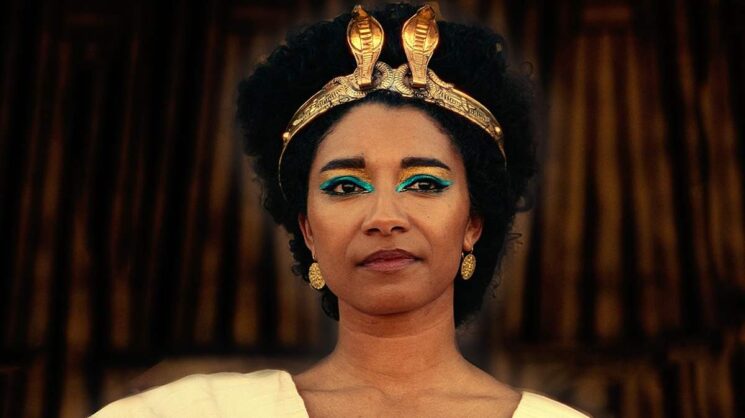
By Maya Ekladious
“Queen Cleopatra” is the second part of the “African Queens” series, which recently premiered on Netflix on May 10. Led and produced by American Actress Jada Pinkett Smith, the series claims to “explore the story of Egypt’s last Pharaoh.” However, the series started receiving criticism and backlash even before premiering. Audiences have been attacking Netflix for casting a biracial British actress, Adele James, as Cleopatra.
The series depicts Cleopatra as black, ignoring her Greek origins which is evident in the trailer’s quote, ‘I don’t care what they tell you in school, Cleopatra was black’. While Netflix says that the casting decision was intended to acknowledge the centuries-long conversation about Cleopatra’s race, officials in Egypt call for a ban of the series and a monetary compensation of $2 billion for “allegedly falsely depicting the image of Cleopatra.” Moreover, the series’ rating on Rotten Tomatoes is currently only 2 percent and according to Forbes, the series appears to have the worst audience score in TV history, and many historians continue to oppose the series.
Egyptians’ response should not be a surprise; we have seen before how ancient civilizations don’t like it when other races play their role. For example, “The Prince of Persia” movie was also attacked for not casting any Persian actors. When a series is titled a documentary, we expect historical accuracy and sufficient research to be done. Misrepresenting Queen Cleopatra is a great mistake that Netflix should take measures to correct. Millionaires such as Jada Smith must be stopped from rewriting our history and fetishizing Egyptian history.
Egyptians’ response to the series is not rooted in racism as some may think. If you are going to make a documentary about Cleopatra and premiere it on one of the most popular streaming services, we expect her to look Greek because she was Greek, not Black. While many find Egypt’s decision to sue Netflix an extreme decision, we need to stop Cleopatra from becoming another piece of Egyptian history that gets taken away by Hollywood and the misrepresentation of the media.





